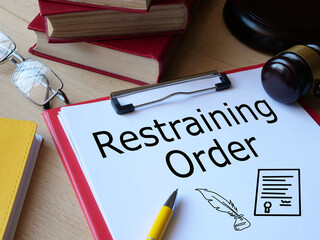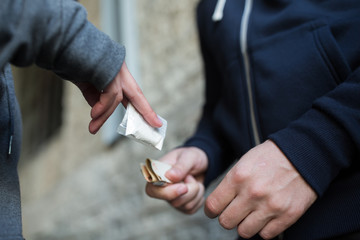There is a drug epidemic sweeping the nation. New Jersey is one of the states that has seen some of the largest problems concerning substance abuse. Today we are going to take a look at NJ drug laws and the different classifications of drugs.
Drug Classifications
One of the factors in determining the punishment for a drug crime in New Jersey is the classification of the drug. The FDA is responsible for the classifications of drugs. These classifications, or schedules, are based on the dangers associated with the drug. Another factor in determining drug classifications is the likelihood of abuse. Also, the FDA takes into account any medical benefit the drug may have. Now, we are going to look at the different schedules of controlled substances in the United States.
Schedule I Controlled Substances
The FDA considers Schedule I controlled substances to have no acceptable medical use, as well as a high risk of potential abuse. These drugs include heroin, LSD, peyote, ecstasy, and marijuana. However, NJ drug laws take a much lighter stance on marijuana. New Jersey is one of many states that are currently discussing the idea of the legalization of marijuana. A change like this to NJ drug laws shows the divide between the American people and the federal government when it comes to marijuana.
Schedule II Controlled Substances
The FDA considers Schedule II drugs to have a high potential for abuse which can lead to physical or mental dependence. However, many of these drugs have legitimate medical uses. Schedule II drugs include hydromorphone, methadone, oxycodone, and fentanyl. As you can see these drugs are all available by prescription.
Schedule III Controlled Substances
The FDA considers Schedule III drugs to have less potential for abuse than Schedule I or II. These drugs can lead to moderate or low physical and mental dependence. Schedule III drugs include buprenorphine, ketamine, and anabolic steroids such as Depo-Testosterone.
Schedule IV and V Controlled Substances
The FDA considers Schedule IV and V substances to have a very low risk of abuse and addiction. These drugs are mostly prescription drugs that are relatively safe.
NJ Drug Laws: Possession
The FDA classifications are a starting point for NJ drug laws. The more dangerous the substance is, the harsher the penalty is for being caught with it. Also, just because a drug is available by prescription, it isn’t legal. Having prescription drugs in your possession without a prescription is illegal. Many people think that just because a doctor can give you a drug, that means anyone can be in possession of it.
Let’s start with marijuana. While NJ drug laws have become laxer on marijuana, this doesn’t mean that you may not face criminal charges. Possession of more than 50 grams of marijuana is a fourth-degree criminal offense in New Jersey. This crime carries a penalty of up to 18 months in prison and a fine of up to $15,000. Smaller amounts of marijuana will most likely result in a simple civil offense and a small fine.
Possession of more dangerous drugs including heroin, cocaine, prescription drugs, and ecstasy will result in a penalty of up to five years in prison, a fine up to $25,000, and mandatory drug classes. If drugs are found in your vehicle, you may also receive a suspension of your driver’s license.
Possession of drug paraphernalia is also a criminal offense. Anyone who receives a drug paraphernalia charge is subject to up to six months in prison, a $1,000 fine, and suspension of their driver’s license.
Having multiple drug possession charges could result in harsher penalties. Also, larger quantities of drugs could result in distribution charges.
NJ Drug Laws: Distribution
If you are caught with a large amount of narcotics, you may be subject to distribution or possession with intent to distribute charges. These charges carry stiff penalties and are all felonies.
Possession of marijuana between one ounce and five pounds is a third-degree felony, between five and twenty-five pounds is a second-degree felony, and more than twenty-five pounds is a first-degree felony. Cocaine and heroin charges are much tougher because of the danger associated with the drugs. More than five ounces of cocaine or heroin is a first-degree felony in New Jersey. Also, repeat distribution offenses can stiffen punishments.
NJ Drug Court
There has been a shift in dealing with drug charges across the nation, and New Jersey is no different. Many first-time offenders are offered the opportunity to enter a drug program that the state has established. The goal is to educate, treat, and limit the likelihood of the offender repeating their crimes. A first-time offenders program may or may not be right for you; you should consult a New Jersey drug crime attorney to determine the best course of action in your specific case.

